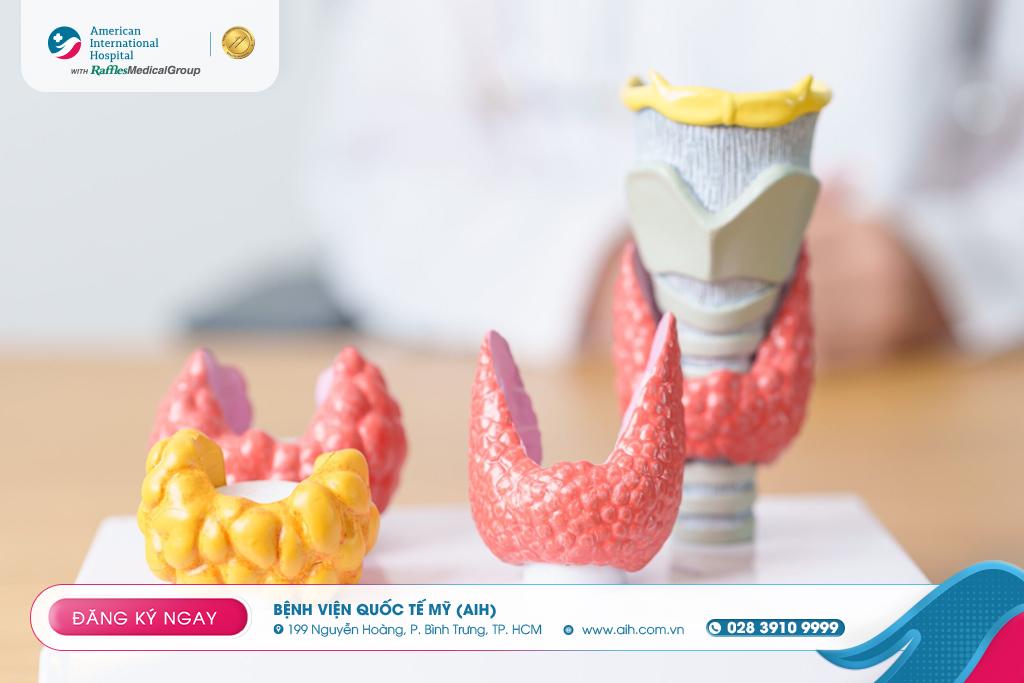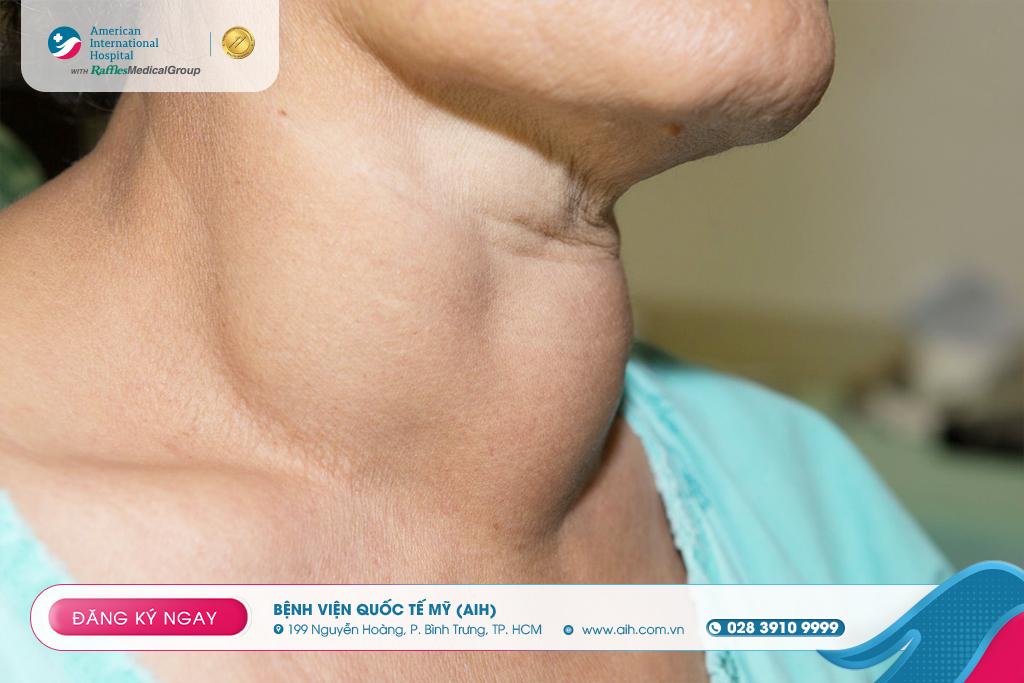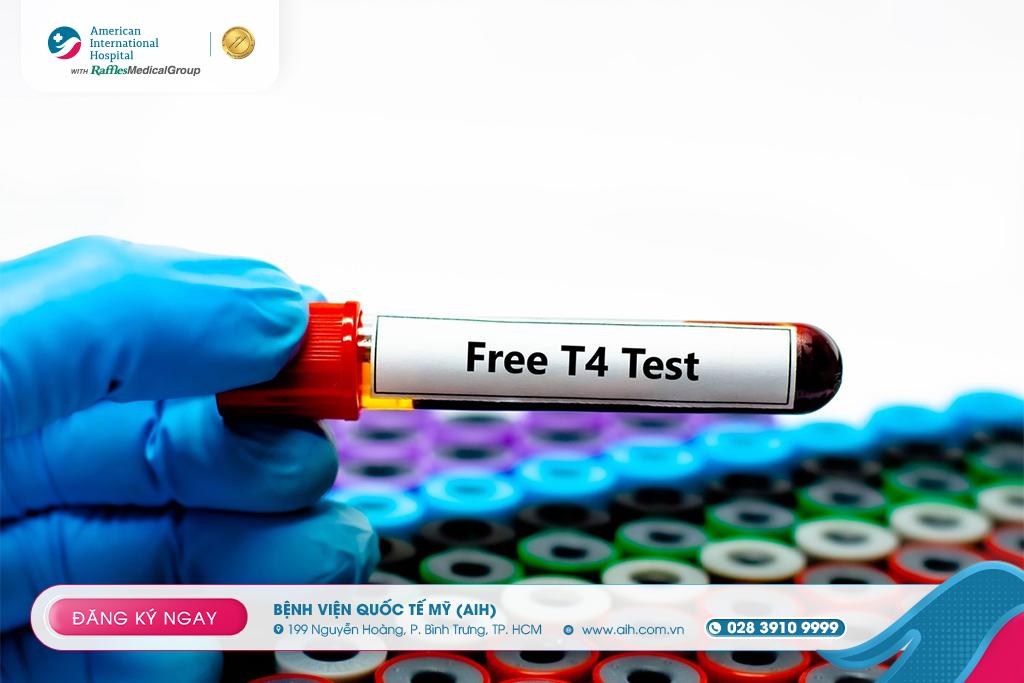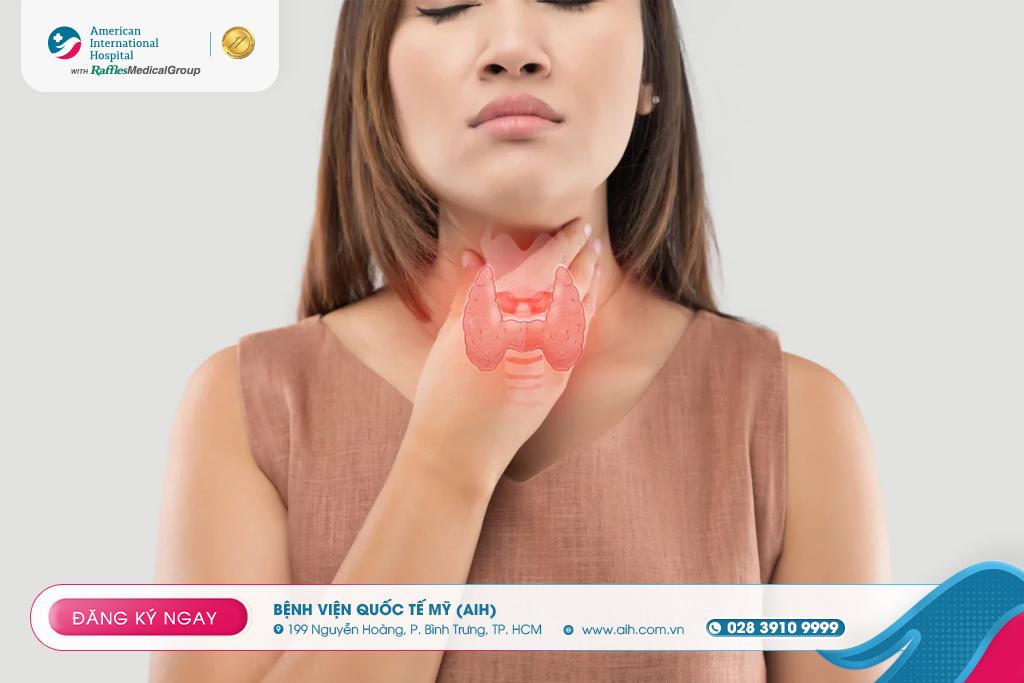Thông báo
Vui lòng điền vào thông tin bên dưới
Khẩn cấp
THYROID DISEASES: SIGNS, TREATMENT MEASURES AND COMPREHENSIVE CARE
The thyroid gland is one of the most important endocrine glands in the body, playing a crucial role in regulating metabolism, providing energy, and affecting almost all organs. When the thyroid gland functions abnormally – which can be underactive (hypothyroidism), overactive (hyperthyroidism), or when goiters and nodules appear – the body will experience many serious health problems, ranging from fatigue, weight gain, changes in heart rate, and hormonal imbalances to direct impacts on reproduction and the nervous system.
Early detection, accurate diagnosis, and timely treatment of thyroid disorders are key to protecting overall health.
What are thyroid diseases?
The thyroid is a small, butterfly-shaped endocrine gland located in the neck, playing a crucial role in regulating the body's metabolism through the production of thyroid hormones. When the function of the thyroid gland is disrupted, the body can experience many serious health problems, ranging from weight changes, fatigue, arrhythmia to affecting hormones and the nervous system. Common disorders include hypothyroidism, hyperthyroidism, autoimmune thyroiditis (Hashimoto's), thyroid nodules, and thyroid cancer.

Common thyroid diseases and their recognition signs
1. Hypothyroidism
Causes: The thyroid gland does not produce enough hormones, often due to autoimmune Hashimoto's disease, iodine deficiency, surgery, or radioactive iodine treatment.
Signs: Fatigue, weight gain, dry skin, thinning hair and hair loss, puffy face, cold sensitivity, constipation, slow heart rate, depression or difficulty concentrating, irregular menstrual cycles in women.
Treatment: Supplementation with artificial thyroid hormone (levothyroxine) and regular monitoring.
2. Hyperthyroidism
Cause: The thyroid gland produces too much hormone, often seen in Graves' disease.
Signs: Weight loss, rapid heartbeat, hand tremors, anxiety, insomnia, excessive sweating, bulging eyes (in Basedow disease), irregular menstrual cycles.
Treatment: Antithyroid drugs, radioactive iodine, or surgery when necessary.
3. Hashimoto’s thyroiditis
Cause: The thyroid gland produces too much hormone, often seen in Graves' disease.
Signs: Weight loss, rapid heartbeat, hand tremors, anxiety, insomnia, excessive sweating, bulging eyes (in Basedow disease), irregular menstrual cycles.
Treatment: Antithyroid drugs, radioactive iodine, or surgery when necessary.
4. Thyroid nodule
Cause: Tumors appear in the thyroid gland, often benign but some can be a sign of cancer.
Signs: A palpable lump, difficulty swallowing, a feeling of discomfort or mild pain.
Treatment: Regular monitoring, biopsy if necessary, or surgical removal.
5. Thyroid cancer
Cause: Rare, but curable if detected early.
Signs: Hard lump in the neck, difficulty swallowing, voice changes.
Treatment: Thyroidectomy, radioactive iodine therapy, and long-term follow-up.

Summary of common identification features
Symptoms of thyroid disease often appear gradually, silently, and are easily confused with other health problems. Some common signs to watch out for:
Unusual weight changes, prolonged fatigue
Changes in heart rate, hand tremors, excessive sweating, or sensitivity to cold.
Dry skin, hair loss, brittle nails.
Swelling in the neck, appearance of a goiter or thyroid nodules.
Voice changes, difficulty swallowing, changes in menstrual cycle.
Why should we care about thyroid disease?
Thyroid disease can affect many organ systems in the body, from cardiovascular and nervous systems to reproduction. Early detection and treatment help:
Prevent complications such as heart failure, osteoporosis, infertility.
Improve quality of life, reduce fatigue and depression.
Enhance overall health and work productivity.
Diagnosis of thyroid disease
1. Clinical examination and workup:
The doctor will begin with a general examination, assessing symptoms related to the thyroid gland. Subsequently, workups are performed to determine thyroid function, including:
Measure thyroid hormones: Free T4, T3, and TSH to assess hormone levels in the blood.
Thyroid ultrasound: Helps detect goiters, abnormal nodules, or changes in thyroid structure.
Fine needle aspiration (FNA) biopsy: If a suspicious nodule or mass is detected, to assess its benignity or risk of cancer.

2. Medical treatment
Using medication to regulate thyroid function:
Hypothyroidism: Is usually treated with thyroid hormone replacement medication (levothyroxine), helping the body receive enough necessary hormones to maintain normal metabolism. Dosage is individualized and monitored periodically through blood tests.
Hyperthyroidism: Use antithyroid drugs to control hormone production, combined with monitoring cardiovascular function and systemic symptoms.
3. Surgical treatment
Thyroid surgery:
Indicated when there is a tumor, thyroid cancer, or a large goiter causing compression.
Partial or total thyroidectomy may be performed depending on the condition and extent of the disease.
Surgery combined with regular postoperative thyroid hormone monitoring to adjust medication if necessary.

Post-treatment care and monitoring
Monitor thyroid function: Regular blood tests to ensure hormone levels remain within normal limits.
Adjusting medication dosage: Based on test results, the doctor will adjust the dosage of hormone replacement or antithyroid medication.
Regular check-ups: Including thyroid ultrasound and general health check-ups to detect abnormal changes early.
Thyroid disease prevention
1. Maintain a healthy diet
A balanced and nutritious diet can help maintain healthy thyroid function. It is recommended to consume adequate amounts of iodine, as iodine is a crucial component in the production of thyroid hormones. Iodine deficiency can lead to goiter and other thyroid disorders.
2. Perform regular screening tests
Thyroid function tests, such as Free T4 and TSH. This testing helps in the early detection of thyroid disorders, thereby allowing for timely intervention.
3. Control risk factors
Some factors that can increase the risk of thyroid disease include:
Family history of thyroid disease.
Women are at higher risk, especially during pregnancy or postpartum.
Age: People over 60 years old have a higher risk.
Iodine deficiency in the diet.
Awareness and control of these factors can help reduce the risk of thyroid disease.
Consult a specialist doctor when symptoms appear
If you experience symptoms such as fatigue, weight gain, dry skin, hair loss, or changes in your menstrual cycle, consult an endocrinologist for advice and a thyroid function test.
Preventing thyroid disease not only helps maintain thyroid health but also contributes to your overall well-being. Be proactive in implementing preventive measures and undergoing regular check-ups to protect your health.
Reference:
--------------------
Tìm kiếm
Tin tức
Bác sĩ






































































Để lại bình luận